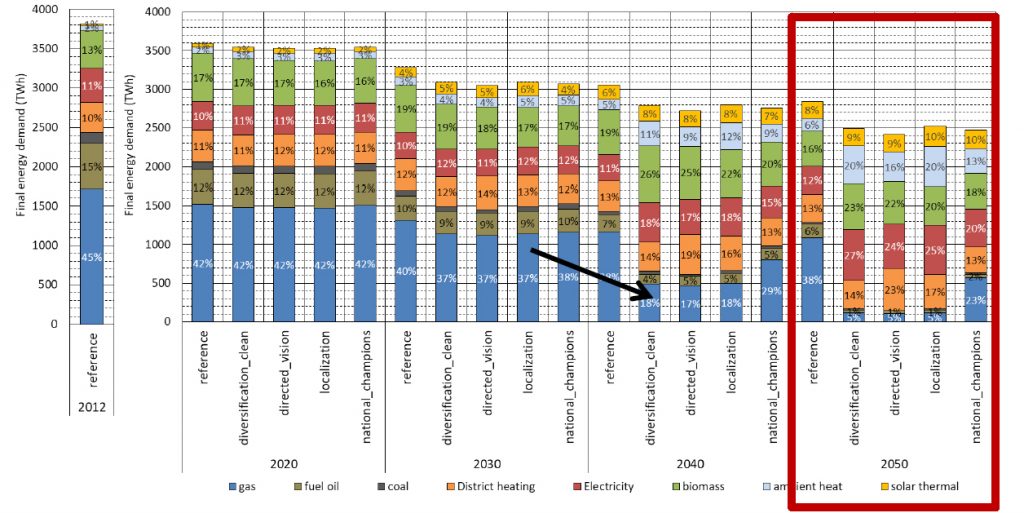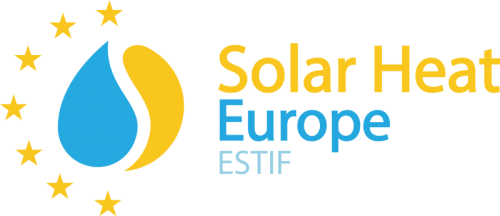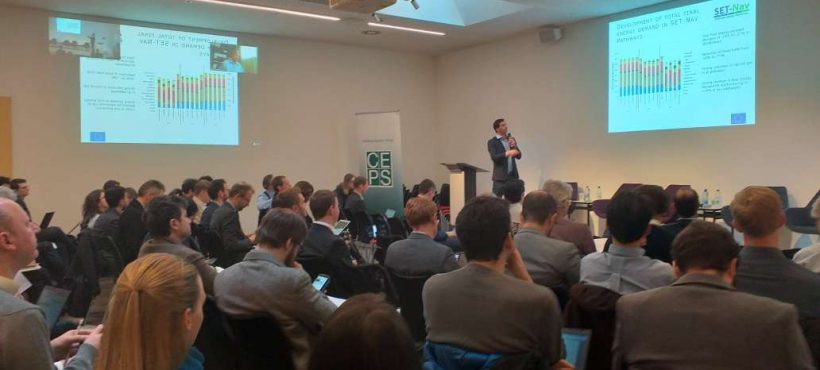For the past two years, a group of academics specialised in energy economics and statistical analysis have been working on modelling the pathway to a decarbonised European energy system. Their conclusions were presented in Brussels on March 21st, hosted by the policy think-tank Centre for European Policy Studies (CEPS).
Their work analysed different policy options or pathways, taking into consideration energy demand in buildings, industry and transport. Renewable heating technologies are set to take a prominent role in decarbonising the energy sector, with solar thermal energy expected to cover at least 10% of the final energy demand for heating and cooling in the EU.
In all scenarios, demand for fossil fuels in the buildings heating sector is expected to drop by 60 to 75% by 2050, and final energy demand decreases by around 35%. However, this may not be enough to make a transition to a decarbonised heating system in Europe in line with climate targets.

Michael Hartner, from the Technical University of Wien, explained that the use of natural gas for heating buildings remains, and that only “the ban of gas really leads to the transition”, he says. He added that “as long as natural gas is still allowed, we don’t think very ambitious targets in the building sector can be achieved”.
You may find the presentations used in this conference on SET-Nav’s website.
For more information about this report or the event, please contact members@solarheateurope.eu.


Leave a Reply